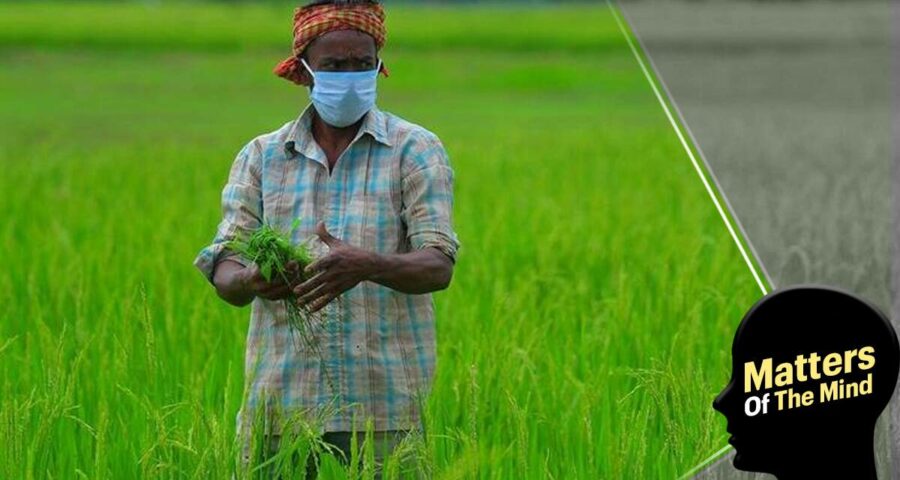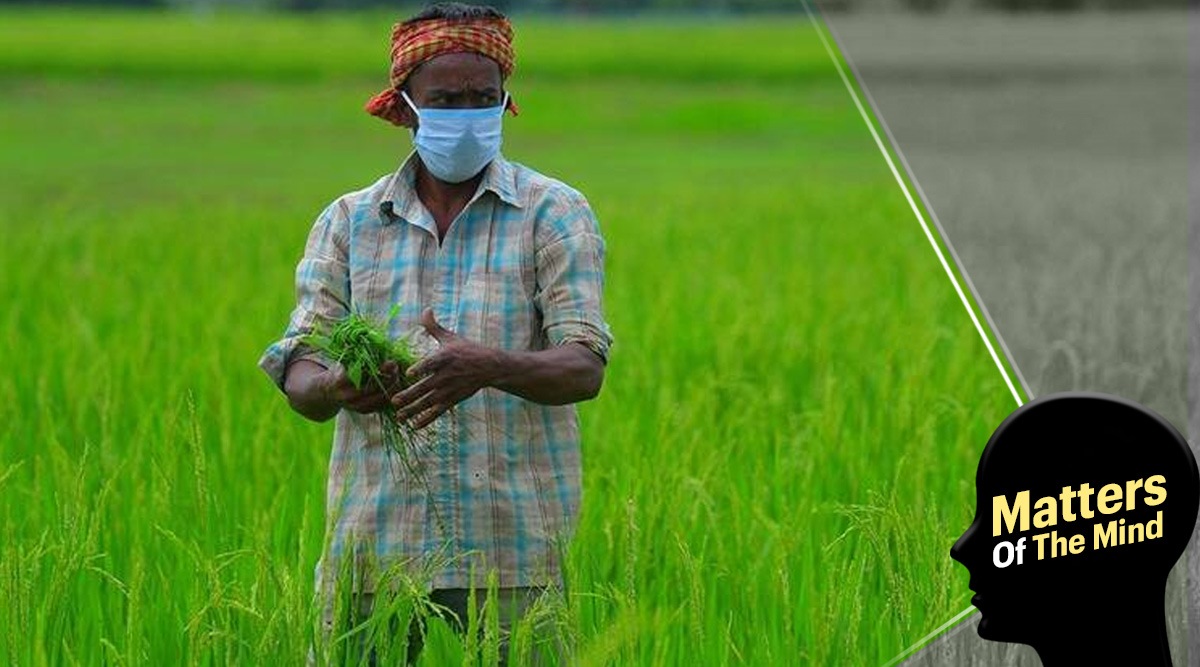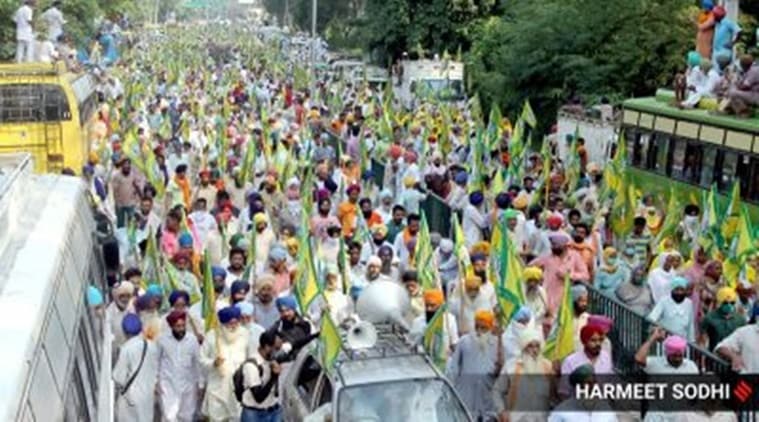As India and its food growers face scrutiny and judgement, I wonder if bills and policies are all that matter
Visiting farms and meeting farmers was a special weekend picnic for us as children growing up in a small city. If it wasn’t the locality garden and instead a long drive or larger picnic was planned, it had to be at someone’s farm.
The best part of these experiences was meeting the people who cared for the farm and the crop, the ever-smiling, always energetic and eager-to-help farmers and their families. They would walk us into the neat alternate rows of slim pathways, deep into the fields, moving swiftly like the wind, over puddles, thorns and stones as if their feet had a mind of their own while turning around to warn us city folks in time for dung pile or anthill.
I remember walking behind them for hours chatting about seasons, soil, sowing and harvesting and the prices of vegetables and grains in the mandi. At times, their children would drag us into their huts at the far end invisible to the bungalows, and slipped into our hands tea or open lemon candy covered with a sugary powder, while the parents indulged in farm-fresh delicacies, sang songs and played Tambola.
Even as a child, I saw the disconnect between the two worlds, strongly held together by a mutually accepted interdependency. I often marvelled at both the similarities and the discrepancies in living conditions, eating habits, possessions and types of conversations among many other things. Fascinated and curious about this co-existence of conspicuously divided worlds walking the same “bighas” of what seemed to me a seamless sameness of green Earth as a child, I “grew up” to accept that divide too.
Once my father received a call late in the evening from the guard at our farm, 40 km from the city, saying that a neighbouring farmer had forcefully broken in with his two brothers and three “khaats”, a comfortable traditional wooden single bed, woven with cotton straps or rope, “mashaals”, a fire torch and large bamboo sticks in hands. There seemed to be whispers of something breaking and someone being injured. There was a quiet restlessness at home as my father made a few calls, packed his briefcase with medicines and first aid and informed mother that he was leaving for the farm with an uncle and a police jeep. There were no mobile phones then. That night at home was silent yet noisy, dark yet blinding and still yet trembled with nervousness.
Father returned home early the next morning as we fussed about the smell of milk on the table (This was a touchy topic with my mother who worships the cow and daily reminded us of their gifts to us). He settled down with his tea on the table and narrated the events to mother, exhausted and oblivious of others around. He told her that the neighbouring farmer had a dream of owning a piece of our land and wanted to realise his dream. Thankfully the matter ended uneventfully and probably was just a deep desire expressed in a drunken escapade by our usually friendly neighbour but it left me with another vital piece of information about farmers. They are passionate about land and they have limited means to express their passion. Often they deny themselves the right to express, repressing for years what they want and finally using what they have to communicate. In this case, the “khaat” showed he wanted to make home at our place and the “mashaal” and bamboo sticks were passionately carried for a serious discussion, I guess like we would carry a laptop for a presentation. Their passion helps them work through hard conditions, unthinkable life and loan challenges and it is the same passion that makes them fight for things that can be resolved with better communication. Later, talking about the event to his friends, my dad would casually recount the “night-long bonfire meeting” the farmer family imposed on him, which to us sounds perilous, but to them, that is how they thought it was done.
As India and its food growers face scrutiny and judgement, I wonder if bills and policies are all that matter. Why are some of the best communicators in the country not able to communicate with a community known for its significant purpose and contribution?
Why not consider a bill that involves free and mandatory education for one per farmer family to the university level in exchange for something they wish, and why not include the community in decisions regarding agriculture in exchange for something the government decides? This might be the chance to change the way they think from the core of their hearts and homes via support, education and exposure, to achieve more of everything good that they so deserve and can achieve. Why not lead their passion into production and profit, instead of punishment and politics?
For more lifestyle news, follow us: Twitter: lifestyle_ie | Facebook: IE Lifestyle | Instagram: ie_lifestyle
Source: Read Full Article



